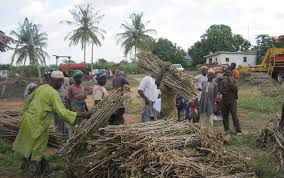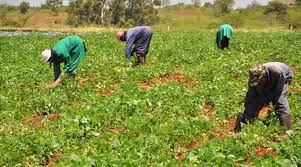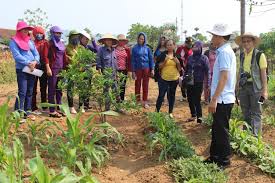This article on the philosophy of agricultural extension education aims to make readers aware of the fundamental principles guiding agricultural extension activities.
Understanding these principles is crucial for comprehending why agricultural extension is involved in its current activities and why its scope is often limited to communication and educational roles. The objectives outlined below specify what should be learned after reading this article.
The basic philosophy of agricultural extension is to help farmers help themselves. This involves assisting them in identifying and finding solutions to problems on their farms and in their homes.
It is important for extension personnel to be guided by this philosophy to effectively aid the clientele in enhancing their decision-making abilities and optimizing the use of scarce resources.
Extension agents should recognize that this philosophy is grounded in the concept of involvement and participatory approaches.
The process of developing farmers’ skills through “learning by doing” promotes sustainability in extension work. By involving people, they are empowered to adopt practical applications of the skills they develop, enabling them to analyze and better solve their own problems.
Once the skills and abilities of the farmers are developed, the capacity of farm families is built, allowing them not only to address their problems but also to seize new opportunities.
When farmers are skillfully empowered, their ability to adopt new technologies increases, and as a result, their income and standard of living are enhanced.
The basic philosophy of agricultural extension, therefore, focuses on instilling a sense of self-reliance in farmers. It discourages dependence on agricultural extension for technical or production needs.
Ultimately, the goal of extension work is to create a process in which farmers can take the initiative in solving their problems as they arise. This might also involve farmers forming groups, societies, and seeking linkage opportunities that provide the necessary technical information.
Read Also: Types of Fungi Reproduction
The Role of Local Leadership in Agricultural Extension

Agricultural extension aims to help farmers build their capacity to make decisions and take initiatives to solve their problems. While this facet is acknowledged, it is important not to underestimate the role of local leadership in achieving extension functions and sustaining extension principles.
Leadership is a significant concept that is often misunderstood (Williams et al., 1983). It is especially important when issues of change are involved. According to Digors (1955), a leader is an individual whose ideas and actions influence the thoughts and behaviors of others. Kesley and Hearne (1963) asserted that the local leader is an accepted group member who helps the group move toward its goals.
In the context of fulfilling the philosophy of agricultural extension, the utilization of local leaders is essential. An extension worker cannot do all the work alone, and new practices are more readily accepted by local people when their leaders adopt them.
Read Also: Life Cycles and Alternation of Generations in Phytophthora and Rhizopus
This is crucial because, before farmers accept and utilize any technology, even if it benefits them, it must first be adopted by their leaders.
Therefore, leaders are needed to legitimize the process. It is important to enhance farmers’ capacity, but their needs and interests should also be properly identified. Local leaders are in a position to mobilize farmers through a participatory approach, helping to identify and prioritize these needs.

Using local leaders in extension work provides the extension agent with a multiplier effect. Local leaders help the extension agent reach many more farmers than would otherwise be possible. Once the extension personnel train the leaders effectively, they assist in spreading information using the approach of “teach one, teach all.”
Despite the role of extension in helping farmers, certain characteristics are important for local leaders. These include:
- Being group-oriented
- Having a high sense of responsibility
- Being considerate and tolerant
- Emotional stability
- Having an interest in the group’s affairs
- A high sense of compliance
- Empathy
- Integrity
- Faith
To sustain the philosophy of agricultural extension through the use of local leaders, there should be adequate training and assistance for them. Leaders should be carefully trained in facilitation methods, subject matter, and principles, and should address leadership problems among themselves.
While working with local leaders, the professional leader (extension worker) should collaborate with them to the point where the local leader feels empowered to ask, “How can I do this job better?” This indicates that the farmer is ready to improve their standing and influence within their community.
This article has explained the philosophy of agricultural extension and emphasized the role of local leaders in fulfilling this philosophy. The focus is on empowering farmers to make decisions and solve their problems, while recognizing that local leaders are essential in legitimizing and sustaining extension activities.
Do you have any questions, suggestions, or contributions? If so, please feel free to use the comment box below to share your thoughts. We also encourage you to kindly share this information with others who might benefit from it. Since we can’t reach everyone at once, we truly appreciate your help in spreading the word. Thank you so much for your support and for sharing!
Frequently Asked Questions
We will update this section soon.

